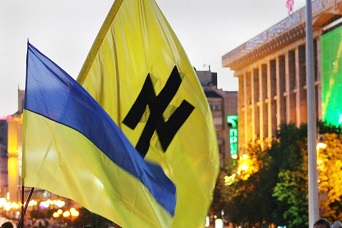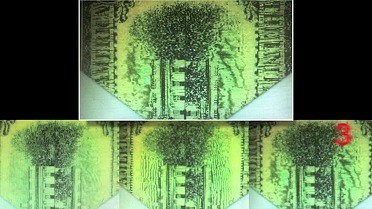Ukraine’s Neo-Nazis Demand Respect
Thousands of Ukraine’s neo-Nazis surrounded the parliament in Kiev demanding that the government honor Ukrainian paramilitary forces who fought for Adolf Hitler in World War II, another embarrassing reminder of the extremism unleashed by last February’s U.S.-backed coup.
For months, the New York Times and other major U.S. news outlets have insisted that it’s just Russian propaganda to say that a significant neo-Nazi presence exists inside Ukraine, but thousands of these “non-existent” neo-Nazis battled police on Tuesday outside the parliament building in Kiev demanding recognition of their Hitler-collaborating forebears.
The parliament, aware of the obvious public relations fiasco that would follow if it bowed to far-right demands to honor members of the Nazi-affiliated Ukrainian Insurgent Army (or UIA), defeated the proposal. That touched off riots by an estimated 8,000 protesters led by Ukraine’s right-wing Svoboda party and the Right Sektor.
Historians blame the UIA and other Ukrainian fascist forces for the extermination of thousands of Poles and Jews during World War II as these right-wing Ukrainian paramilitaries sided with the German Nazis in their fight against the Soviet Union’s Red Army. Svoboda and the Right Sektor have elevated UIA leader Stepan Bandera to the level of a Ukrainian national hero.
But Svoboda and Right Sektor activists are not just neo-Nazi street protesters. They were key figures in last February’s violent uprising that overthrew elected President Viktor Yanukovych and established a coup regime that the U.S. State Department quickly recognized as “legitimate.” Many far-right militants have since been incorporated into the Ukrainian military in its fight to crush resistance to the coup regime from ethnic Russians in Ukraine’s east.
Though played down by the Western press, the neo-Nazi affiliations of these militants have occasionally popped up in news stories, including references to displays of Nazi insignias, but usually these citations are mentioned only in passing or are confined to the last few paragraphs of lengthy stories or are dismissed as “Russian propaganda.”


























